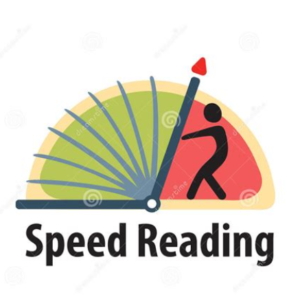Mastering Efficient Reading and Learning for Key Exams: A Comprehensive Guide
Effective Reading Strategies for Standardized Tests
Achieving success in standardized tests like SAT, ACT, TOEFL, IELTS, and various college entry exams requires more than just knowledge; it demands mastery in efficient reading. Employing effective reading strategies can significantly impact one’s performance. Among these strategies, skimming and scanning stand out. Skimming involves quickly running your eyes over the text to get a general idea of the content. It’s particularly useful when you need to grasp the main idea quickly. Scanning, on the other hand, is about looking for specific information or keywords within the text. This method is beneficial when you have precise details to locate.
Critical reading is another essential skill, with an emphasis on understanding and evaluating the material rather than just reading it superficially. This involves questioning the text, identifying arguments, and discerning the author’s purpose and tone. Active reading and annotating are critical components here. Taking notes, highlighting key points, and jotting down questions or comments in the margins can help readers engage more deeply with the text. This interaction not only aids in retention but also in making informed answers on exam questions.
Managing reading time effectively is crucial during exams. Often, test-takers struggle with the pressure of the ticking clock. A common pitfall is spending too much time on difficult passages or questions. Instead, practice time management by setting time limits for each section and sticking to them. One useful technique is the “two-pass system,” where you quickly go through the section first, answering easier questions, and then return to more challenging ones.
To illustrate these techniques, consider a practice question from the SAT reading section: “Based on the passage, which of the following best describes the author’s attitude towards the subject discussed?” This question requires skimming to understand the central theme and critical reading to discern the author’s attitude.
Resources are paramount for honing these skills. Recommended prep books such as “The Official SAT Study Guide” and “Barron’s ACT” offer ample practice materials. Online platforms like Khan Academy for the SAT or Magoosh for the TOEFL provide interactive lessons and practice tests, which are invaluable in developing efficient reading habits.
Efficient Learning and Study Techniques for Exam Success
Achieving success in key exams, including graduate school admission tests in China, heavily relies on mastering efficient learning and study techniques. Adopting active learning strategies can significantly enhance information retention and understanding. Active learning involves engaging with the material through discussions, practice questions, and teaching the concepts to others, ensuring that students process and apply knowledge actively rather than passively.
Spaced repetition is another critical method that has proven effective in long-term retention. This technique involves reviewing material at increasing intervals, which helps reinforce learning and counteract the forgetting curve. Employing tools like flashcards or spaced repetition software can facilitate this process, ensuring consistent review of key concepts.
The Pomodoro Technique is well-known for maximizing productivity during study sessions. By breaking study time into 25-minute intervals, separated by short breaks, students can maintain focus and reduce burnout. This method encourages sustained concentration and can be particularly useful during intense preparation periods.
Creating and adhering to a structured study schedule is fundamental to managing study time efficiently. A well-designed schedule should prioritize major topics, allocate specific times for different subjects, and include regular reviews. Setting realistic goals and deadlines within this schedule can keep students on track and prevent last-minute cramming.
Utilizing mnemonic devices can aid in memorizing complex information by associating it with simpler, memorable concepts. These devices can be acronyms, visualizations, or phrases, making it easier to recall essential facts during exams.
When preparing for different types of exam questions, targeted strategies can be invaluable. Multiple-choice questions often require critical reading and elimination techniques, while essay questions demand structured thinking and clarity in argumentation. Problem-solving questions emphasize the need for a sound understanding of principles and formulas. Practicing these question types under timed conditions can build confidence and improve exam performance.
For comprehensive preparation, specific books like “The Definitive Guide to Graduate Admission Exams in China” offer in-depth coverage of subjects and practical insights into test-taking strategies. Online courses and workshops from platforms like Coursera and Udemy provide additional support, offering practice exams, tutorials, and interactive learning experiences that can further bolster exam readiness.


Post Comment